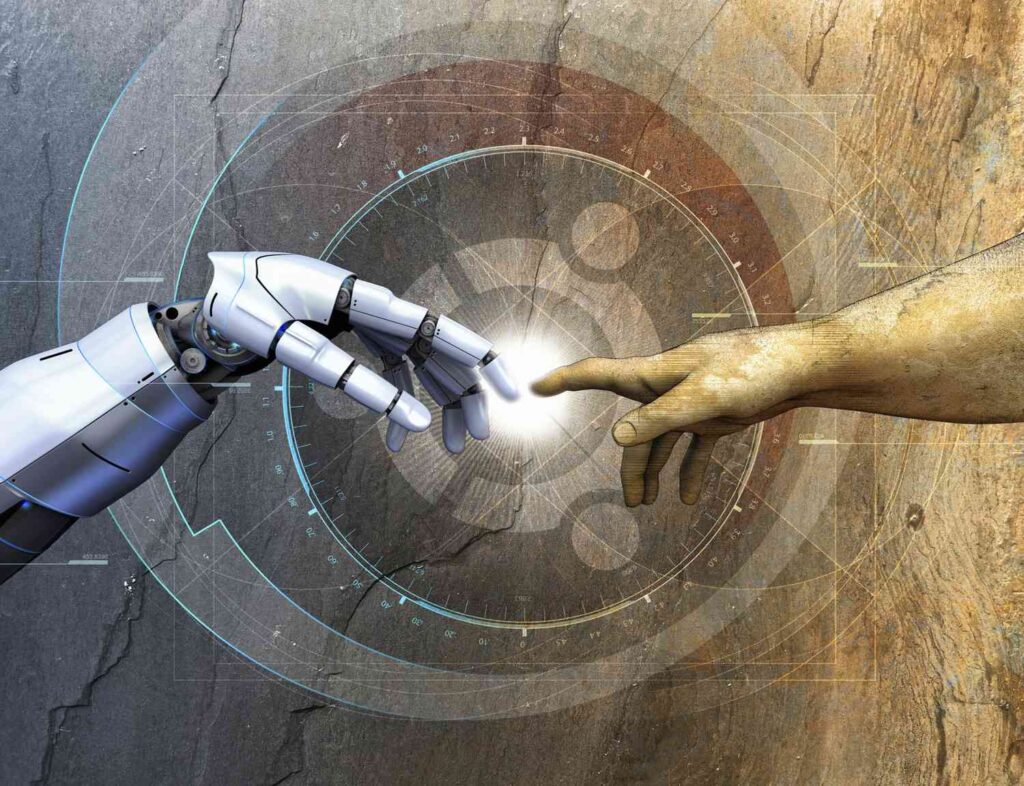Technological innovations have constantly shaped the forms of human society and overshadowed everything from the way we express to the way we see the world around us. One of the most profound effects of technological development has been on religion. It has catalyzed major changes in religion, changing beliefs, practices, and the structure of religious communities.
Invention of the Printing Press and the Reformation
One of the earliest and most important technological inventions to influence religion was the printing press, invented by Johannes Gutenberg in the 15th C.E. Before the printing press, religious texts were copied by hand, making them rare and elite. The Holy Bible, central to Christianity, was available only to a few, mainly the Priestly Class.
The printing press revolutionized that paradigm. For the first time, religious literature could be produced on a large scale, dramatically increasing their accessibility. This democratization of religious knowledge laid the foundation for the Reformation. Martin Luther’s 95 theses, nailed to the church door in 1517, quickly spread throughout Europe with the help of the printing press. The Reformation challenged the hegemony of the Roman Catholic Church, causing the spread of Protestant denominations and changing the religious landscape of Europe.
The Scientific Revolution and the Enlightenment
The Enlightenment and Scientific Revolution of the 17th and 18th centuries fundamentally changed the relationship between technology, science, and religion. Advances in astronomy, physics and biology began to question traditional religious views of the Universe and human origins. The heliocentric model put forward by Copernicus and later supported by Galileo contradicted the geocentric view believed by the Church.
These scientific advances encouraged a more rational discourse. Thinkers such as Kant and Voltaire advocated reason and empirical knowledge over blind faith, which led to the gradual secularization of society. Although religion remained influential, its hold on intellectual and public life began to loosen, leading to a more nuanced understanding of the natural world.
The Industrial Revolution
The industrial revolution of the 19th C.E. brought with it unprecedented technological advancements and socio-economic changes. Urbanization due to industrialization caused a large population to migrate from the countryside to the cities. This change had a significant impact on religious practices and community structures.
In rural areas, religious life was often closely intertwined with rout life. Churches were centers of community, and practicing religion was a collective experience. On the contrary, the anonymity and speed of city life diluted these community bonds. As people adapted to urban life, traditional religious practices disappeared, and new forms of religious expression emerged. Revival movements, evangelicalism, and new religious movements flourished and sought to meet the spiritual needs of the urban populace.
The Advent of Mass Media
The 20th century saw the emergence of mass communication technologies, including radio, television, and the Internet, which further evolved religious expression and propagation. Radio and television evangelism have emerged as effective means of reaching large audiences. Personalities such as Billy Graham used these platforms to spread their messages, transcending geographical boundaries and creating a global religious presence.
The Internet in particular is changing religious practice and community building. Online platforms, social media and other digital spheres have helped religious communities to connect and interact in ways earlier unfathomable. Virtual churches have become more common, especially during global crises such as the COVID-19 pandemic. The Internet has also fostered the rise of interfaith dialogue and the exploration of different religious ideas, contributing to a more pluralistic religious landscape.
Ethical Dilemmas pertaining to Biotechnology
Developments in biotechnology and medicine have brought new ethical and theological challenges to religious communities. Issues such as genetic engineering, cloning, and artificial insemination technologies have generated heated debates within and between religious orders. These innovations force religious leaders and followers to address questions about the sanctity of life, the definition of human identity and the limits of human intervention in natural phenomena.
For example, the Roman Catholic Church has taken a strong stance against practices such as cloning and genetic modification, emphasizing the moral implications and potential risks associated with these technologies. At the same time, other religious groups can adopt more nuanced or permissive positions that reflect different theological interpretations, ethical considerations and need of the present times.
Artificial Intelligence and the Future of Faith
As we enter the 21st century, the rapid development of artificial intelligence and machine learning is bringing new frontiers to religious thought and practice. Artificial intelligence technologies can transform religious education, spiritual counseling and even the creation of religious texts. For example, AI algorithms can analyze vast amounts of religious literature and provide new insights and interpretations that were previously unavailable.
But the integration of artificial intelligence into religious contexts also raises valid questions. Can machines have spirituality or consciousness? How should religious communities respond to the ethical problems of autonomous systems of artificial intelligence? These questions challenge traditional understandings of divinity, humanity, and the relationship between the two, triggering a reevaluation of long-held beliefs and practices.
The sustainable Interaction of Faith and Technology
Technological innovation has been the catalyst for great religious change throughout history. Each technological leap from the printer to the Internet shaped the distribution of religious information, the formation of communities and the practice of faith. As the world of artificial intelligence and biotechnology continues to evolve, the interaction of technology and religion will undoubtedly present new hurdles and opportunities.
Religion as a dynamic and adaptive part of human culture continues to grow in response to technological developments. The ongoing dialogue between faith and technology will shape the future of religious experience, ensuring that spirituality remains an important and transformative force in an ever-changing world.


![Izzy Izumi AI Voice Model – Complete Guide for [2025]](https://thenesterblog.com/wp-content/uploads/2025/05/Izzy-Izumi-AI-Voice-Model-300x169.webp)


